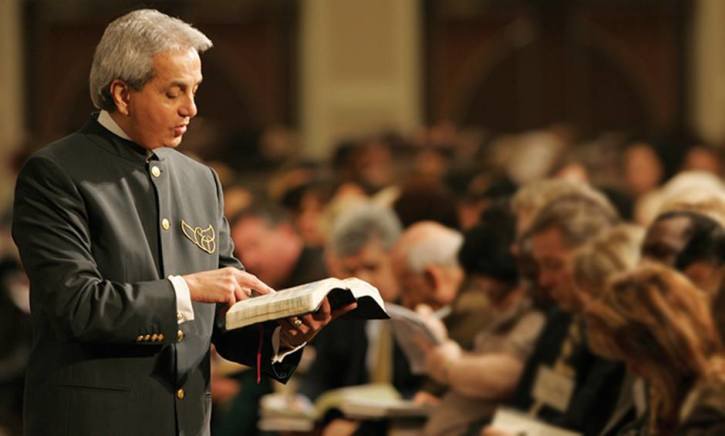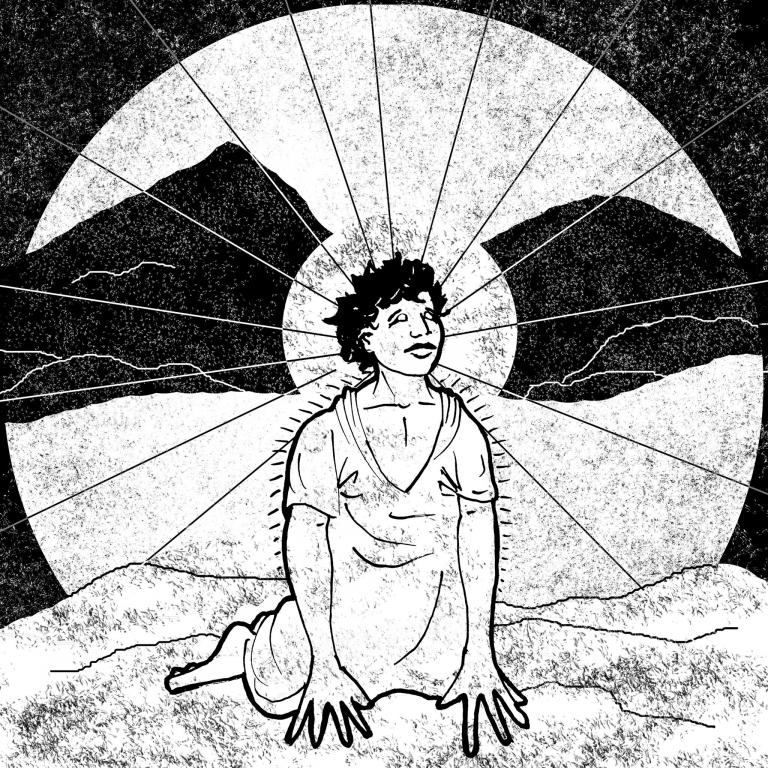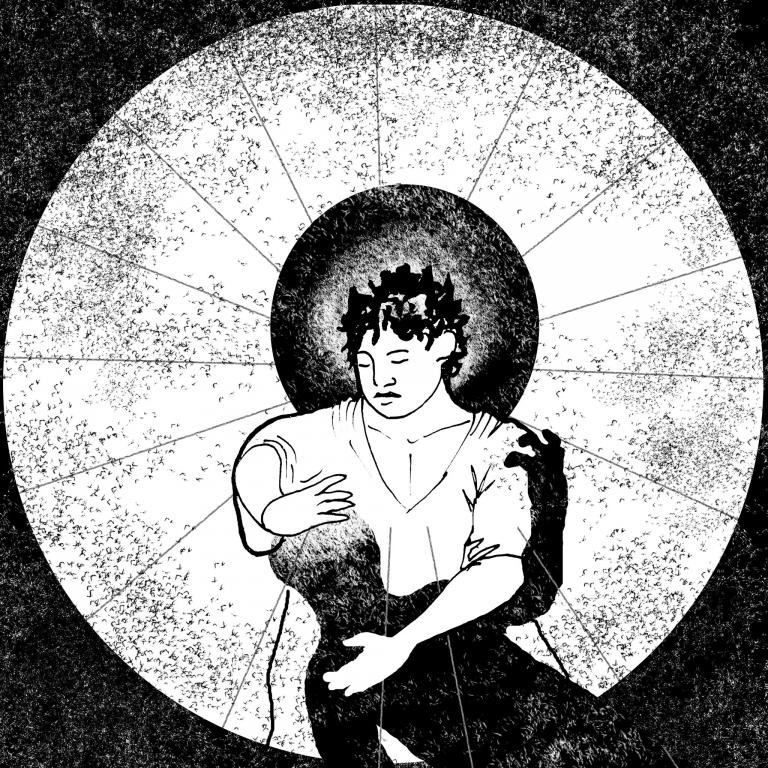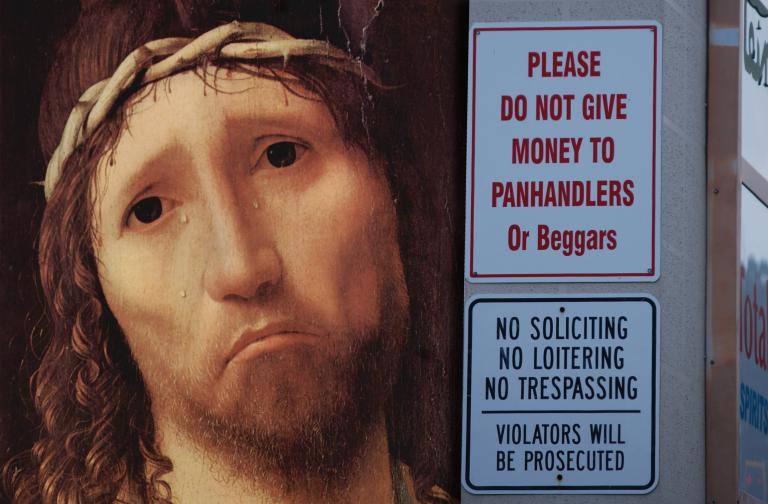My faith collapsed with my mother’s lungs.
I spent my late teens caring for my dying mother. After years of struggling with emphysema, my mom’s lungs failed. Thankfully, with the help of medication and an oxygen tank, she was able to survive for the few years it took to get a lung transplant. Her surgery was successful, but the anti-rejection meds made her puffy, and she always seemed dangerously close to death. But she was alive…until she started smoking again. Within a few months of lighting up for the first time in years, she was dead. She died when I was 19.
During the time in life when other teenagers were getting drunk in ice-houses or playing CB tag, I took care of my mother. The depressingness of those years seemed to fit the spirit of early nineties. My life read like an over-wrought script about a young man’s struggle with depression-laden absurdity. I was Gilbert Grape. I smelt like Teen Spirit. Gone was the optimism of the 80s, only to be replaced with the cynical honesty of the early 90s.
I didn’t go to college after high school, even though my ACT scores were the best of my graduating class. Family first. I didn’t have many friends–many moved away after graduation. I was afraid to leave my mother alone. I was terrified that she would die while I was gone. In those rare occasions I’d go out with friends, my mother would shame me for staying away too long. “It is a good thing I didn’t die while you were out with your friends,” she would say.
My mother did let me have a part-time job, however. I needed money for a car and clothes, and the money she got only covered the basics: rent and food. I had what is perhaps the most soul-numbing job imaginable. I worked about 15 hours a week sweeping a warehouse. It was a 40,000 square foot freezer that housed only one thing: McDonald’s french fries.
I was supposed to take a break every hour, because of the cold. I recall one time my supervisor asked me “Why don’t you ever take breaks? It is freezing in there, you’re supposed to take a break sometimes.”
I responded: “What’s the point?”
And then I would get into my car and drive home. My car was as sad as my job. It was an old Datsun 200SX with failing breaks. It was pale blue and rusty. The driver’s side seat was propped forward by a broken hard-shelled suitcase. There was no muffler. But the stereo worked.
Since my job gave me a lot of time alone to think, my mind would often ruminate over my miserable lot in life. I felt abandoned. I was the youngest of six children, yet I was left to care for my dying mother. I was a bright kid, yet I stayed in my small town while friends left for college or career. My church, which had once given my life meaning, was going through a split. I felt abandoned by family, friends, and church.
I felt abandoned by God. The earlier years of my faith had been marked by deep feelings of conviction. God had seemed close to me–sometimes overwhelmingly so. But during this season, I felt nothing. Only drab loneliness.
One day, I drove home to my dying mother in my death-car after sweeping a freezer that held little slivers of frozen potato which would later get a hot oil bath and be eaten by fat faces. It was a cloudy day. This was my life.
My mother and I lived in a subsidized apartment near the trailer park on the north side of town. The walls were white, the carpet beige. I did my best to keep the apartment clean, but my mother was a hoarder. Soda cans (she drank Squirt) were strewn around the couch, my mothers nest. She had a bedroom, but she only used it for storage. She preferred the convenience of the couch–with its proximity to the television and the refrigerator–to the privacy of a bedroom.
Normally when I got home, I would go to the fridge, grab a soda, and proceed to sit down in my chair to watch television with my mother. It was the closest thing to bonding I had with her; we watched Days of Our Lives together.
But on this day, I only mumbled to her as I walked directly to my room. Earlier, as I swept dust off of a cold concrete floor, I had reflected upon my sad life and decided that I would formally renounce Christ.
I wanted to do it properly. I cleared space in the middle of my bedroom floor. I stripped naked and lay down upon the beige carpet of my bedroom, eyes staring up at the ceiling. After a time of silence, I began speaking words of rejection to God, committing intentional acts of blasphemy. If God had forsaken me, I would forsake God.
I’ll spare you all of the blasphemous details. I blasphemed, forsook, and un-prayed for about an hour. When it was over, I was tired and numb; there was no release. No closure. I was just a naked depressed teenager laying on the floor.
But then, in the silence, something happened. I felt the presence of Christ. It wasn’t accompanied by joy; it was accompanied with deeper feelings of sadness. In my soul, I knew that this deepening sadness was not my own, but the sorrow of Christ. Christ had come to commiserate. In those moments I knew he felt as I felt. He seemed as fed up, as angry, as depressed. He was with me in the midst of my grey season.
As I lay in silent sadness, Jesus said: “Let it all go. Forsake it all. But you can’t forsake me, because I haven’t abandoned you. You can reject everything–the church, your theology, everything, but I’m still here.” And then things drifted back to normal. I was left on the floor in silent sadness.
My life continued in the same sad way, but something small had shifted. I look back upon that day as the reason I’m a Christian. By forsaking Christ, I found Christ. Or, to be more precise, he found me.











